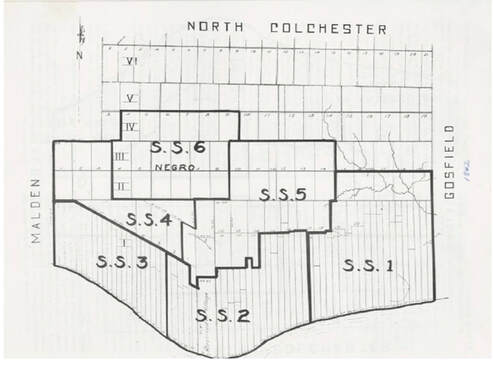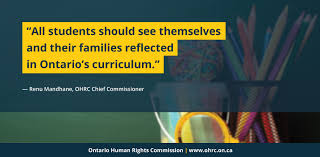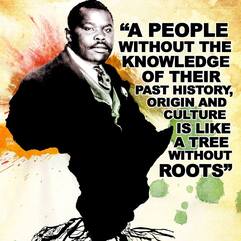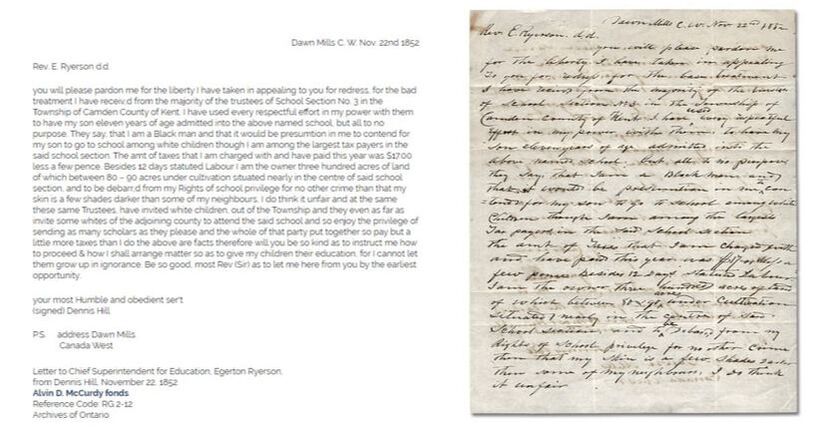|
“When Black history and Black contributions are denied in the curriculum and by those who teach it, Black people are themselves denied.” – Teaching for Black Lives, Rethinking Schools This week, February 3 – 7, 2020, is the #BlackLivesMatterAtSchool Week of Action. The timing of this week of action coupled with the current state of affairs in Ontario and across Canada pertaining to Black children and Black families in the public education system, it is an opportune time to learn about and reflect on the long history of anti-Black racism public education in Ontario and across Canada, which continues to remain a reality. I provide a brief description of that history in my research brief discussion paper, Anti-Black Racism in Ontario Schools: A Historical Perspective. This growing activism is a 21st century iteration of the ongoing movement for racial justice for Black children in state educational institutions beginning from post-emancipation, through to the Civil Rights Movement, through to the Black Power Movement, through to today. We must also be reminded of the long history of advocacy and organizing by Black parents, Black communities, and Black educators in pursuit of the eradication of the education debt owed to Black Canadians in Ontario. Dr. Ladson-Billings argues that we need to look at the "education debt that has accumulated over time. This debt comprises historical, economic, sociopolitical, and moral components." Understanding the legacies of educational inequities experienced by Black children elucidates today's outcomes and should be used to guide the actions needed to address persistent anti-Black racism. What is the education debt to Black children given the history? This week of action encapsulates everything that has been going on in Ontario over the past few decades and functions as a reminder of the universality of anti-Black racism in educational systems. These five days are a call to action to interrupt and dismantle educational policies and practices that harm Black youth. The four central demands are: End Zero Tolerance This speaks to the issue of the discipline of Black students and the ways they are criminalized in school spaces. One aspect of this issue that Black communities have raised is SRO programs in schools and how police officers in schools are sometimes used to discipline Black students. An extension of this issue is the role of the educational system in feeding the school-to-prison pipeline. Black communities are seeking solutions such as culturally relevant counselling support and the use of restorative justice to address the racial disparities in discipline.
Fund Counselors This demand asks educational systems to pay attention to and invest in services that support the mental health and well being of Black children and to address/remove the conditions that negatively impact the healthy development of Black students, such as dealing with the use of the n-word and other racial slurs.
More Black Teachers The first Black teacher and Black principal in Toronto was Wilson Brooks in 1952 although Black students have attended public schools in that city since its inception in the 1800s. This demand is self explanatory and raises the issue that communities have expressed that teachers should better reflect the changing demographics. Numerous studies have highlighted the benefits of Black teachers to all students, particularly Black teachers with an antiracist pedagogy. It also raises the issues of the working conditions of Black teachers and administrators, as well as the promotion and retention of Black educators.
Mandate Black History & Ethnic Studies This demand seeks redress for the systematic exclusion of African and Black peoples from the official curriculum and a corrective approach to the problematic representation of Black peoples. A quote from the book Teaching for Black Lives succinctly summarizes this: “When Black history and Black contributions are denied in the curriculum and by those who teach it, Black people are themselves denied.” This demand calls for Black and African histories to be constitutive of, not merely add-ons to the provincial curriculum. There is not one specific learning expectation about Black Canadian history that all students in Ontario have to learn, despite a 400-year presence on these colonized lands. I have researched and written about how Black history is taken up in the Ontario SSHG and CWS curriculas in my masters research project, Lend me Your Ear: the Voice of Early African Canadian Communities in Ontario through Petitions and more recently in my chapter contribution, “Where are the Black People? Teaching Black History in Ontario, Canada”, in the book Perspectives of Black Histories in Schools. My website came about as a response to the exclusion and absence of Black people in the curriculum. Black History Month was born out of the activism to address the particular forms of exclusion, erasure, and representation of Black history. In the 1920s when Dr. Carter G. Woodson established Negro History Week which evolved into the month-long observance that we recognize today. There are many studies that discuss the demands from Black students and parents for Black history in the curriculum and describes how this exclusion is a pernicious form of neglect, trauma, and infringement of human rights such as Towards Race Equity in Education by Dr. Carl James, The Roots of Youth Violence Report by Roy McMurtry and Dr. Alvin Curling, the Stephen Lewis Report on Race Relations in Ontario, and this recently published article, Ending Curriculum Violence. The Ontario Human Rights Commission states that: “The Code guarantees each person the right to equal treatment in the service of education, without discrimination based on the grounds of race, ancestry, place of origin, colour, ethnic origin, citizenship, creed, sex, sexual orientation, gender identity, gender expression, age, marital status, family status or disability. This includes equal access to and benefit from Ontario’s education system…” One of the recent recommendations of the OHRC to education systems to uphold the human rights of children in their charge is to “enhance the curriculum to reflect diversity and include content on human rights.” Further, many studies discuss the benefits of the integration of Black historical narratives for Black students and by extension, all students. Across Ontario & Canada There is the misperception of anti-Black racism in education as being only interpersonal and localized meanwhile the broader, systemic, and interconnected operation of anti-Black racism in education is ignored. Looking back only four years in Ontario, there are several instances where concerns of anti-Black racism has been raised: Durham DSB, York Region DSB, Waterloo DSB, Ottawa DSB, the Ministry of Education review of Peel DSB, Halton DSB, and as I started writing this blog post yesterday, Black and Muslim students in the Hamilton-Wentworth DSB held a press conference on racism and Islamophobia in schools, outling some key demands. We can extend westward to British Columbia in the Vancouver School Board. What these examples illustrate is the need for province-wide government and community strategies as well as a national coalition. The ongoing labour action going on across the province has had an impact on efforts to address the needs and concerns of Black students. Many educators have expressed that cuts to education disproportionately affects marginalized and underserved students and that’s part of why they are fighting. This week should serve as reminder that anti-Back racism doesn’t take a break, and as such serving Black children in a more equitable and just manner is not mutually exclusive from meeting the learning needs of Black students during the instructional day nor is it an optional side project. The lens to operate from is to understand and address the myriad of interconnected ways that the system inflicts oppression on Black students, not view Black students as impoverished, lacking, and in need of fixing. This Week of Action encourages all stakeholders to engage in deep learning and unlearning and to organize to take action that will create systemic change to improve the educational experiences and outcomes of Black students.Teachers and students look at the various ways that the movement for racial equity in education has taken shape. One example shared is the New York City school boycott that took place on Feb. 3, 1964. Black communities in Ontario have also been persistent and vigilant in their advocacy and their activism has taken many different forms since the 1800s, from writing letters and petitions to then superintendent of education (what we would now call Minister of Education) Egerton Ryerson, marching in protest against segregated schools in Chatham on Emancipation Day, filing lawsuits, keeping their children home to boycott segregated schools, and today attending school board meetings, running for the position of school trustee, demanding responsive solutions such as the Africentric Alternative School, organizing freedom schools, and speaking their truths that have been documented on video and in reports. The goal has always been and continues to be to achieve a future that is full of possibilities and free from racial inequities and harm and the intentional creation of learning environments where Black children can thrive. The #BlackLivesMatterAtSchool Week of Action builds on the tradition of fighting for equity, justice, and liberation. Carry on.
1 Comment
Rubin Brooks
2/6/2020 02:22:06 pm
Thank you for this article. Here! Here!
Reply
Your comment will be posted after it is approved.
Leave a Reply. |
AuthorNatasha Henry Archives
October 2023
Categories
All
|





